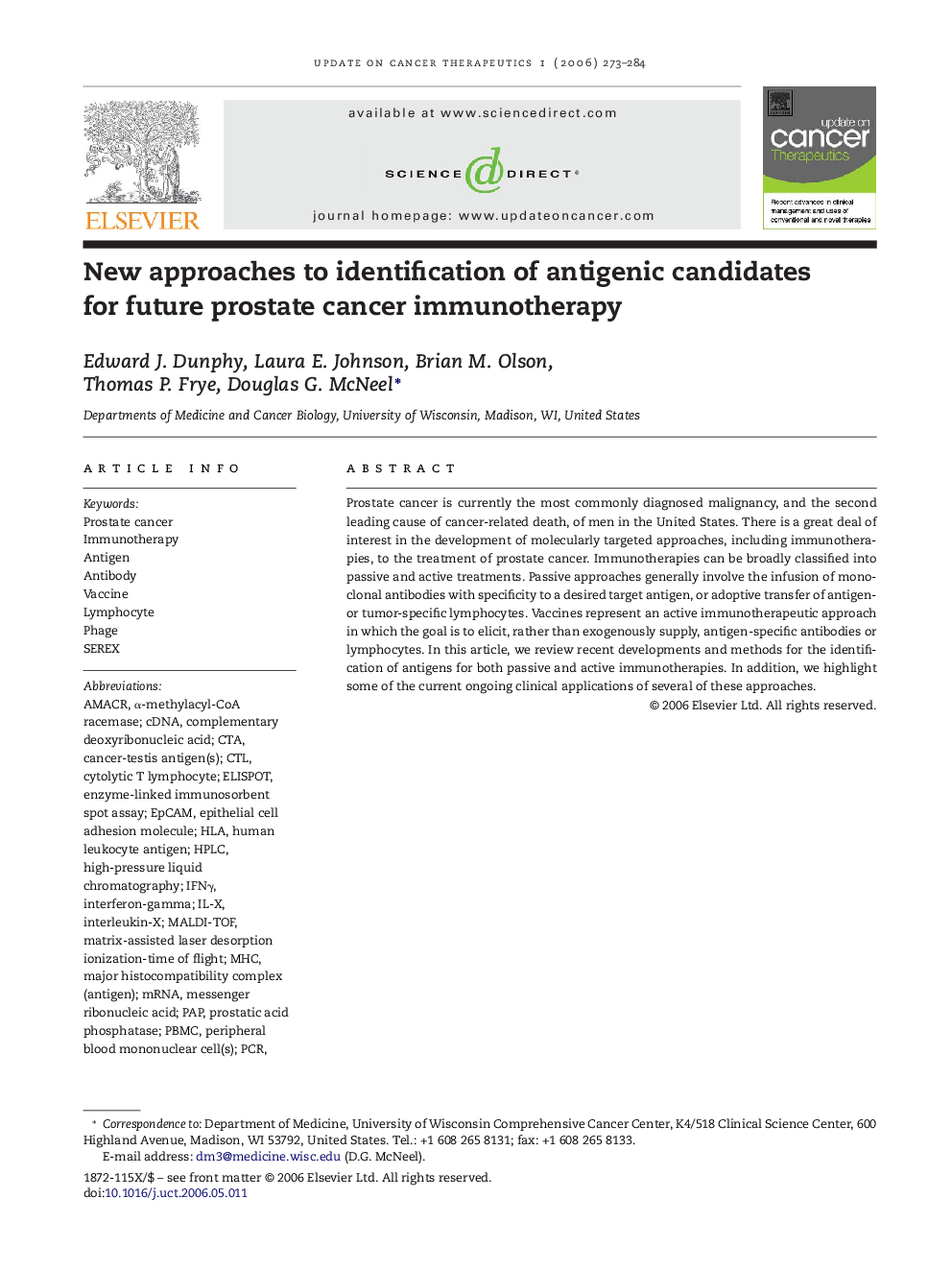| Article ID | Journal | Published Year | Pages | File Type |
|---|---|---|---|---|
| 2164302 | Update on Cancer Therapeutics | 2006 | 12 Pages |
Abstract
Prostate cancer is currently the most commonly diagnosed malignancy, and the second leading cause of cancer-related death, of men in the United States. There is a great deal of interest in the development of molecularly targeted approaches, including immunotherapies, to the treatment of prostate cancer. Immunotherapies can be broadly classified into passive and active treatments. Passive approaches generally involve the infusion of monoclonal antibodies with specificity to a desired target antigen, or adoptive transfer of antigen- or tumor-specific lymphocytes. Vaccines represent an active immunotherapeutic approach in which the goal is to elicit, rather than exogenously supply, antigen-specific antibodies or lymphocytes. In this article, we review recent developments and methods for the identification of antigens for both passive and active immunotherapies. In addition, we highlight some of the current ongoing clinical applications of several of these approaches.
Keywords
SEREXAMACRIFNγELISPOTPSMAEpCAMPAPPSAmRNACTAMALDI-TOFPBMCCTLα-methylacyl-CoA racemasePSCAcDNAProstate stem cell antigenProstate-specific membrane antigenHuman leukocyte antigenHLAenzyme-linked immunosorbent spot assaycomplementary deoxyribonucleic acidimmunotherapyinterferon-gammaTILSerial analysis of gene expressionSAGEmessenger ribonucleic acidmatrix-assisted laser desorption ionization-time of flightProstate cancerperipheral blood mononuclear cell(s)PhageLymphocytecytolytic T lymphocyteMHCepithelial cell adhesion moleculeVaccinepolymerase chain reactionPCRAntibodyprostate-specific antigenAntigenProstatic acid phosphatasehigh-pressure liquid chromatographyHPLC
Related Topics
Life Sciences
Biochemistry, Genetics and Molecular Biology
Cancer Research
Authors
Edward J. Dunphy, Laura E. Johnson, Brian M. Olson, Thomas P. Frye, Douglas G. McNeel,
